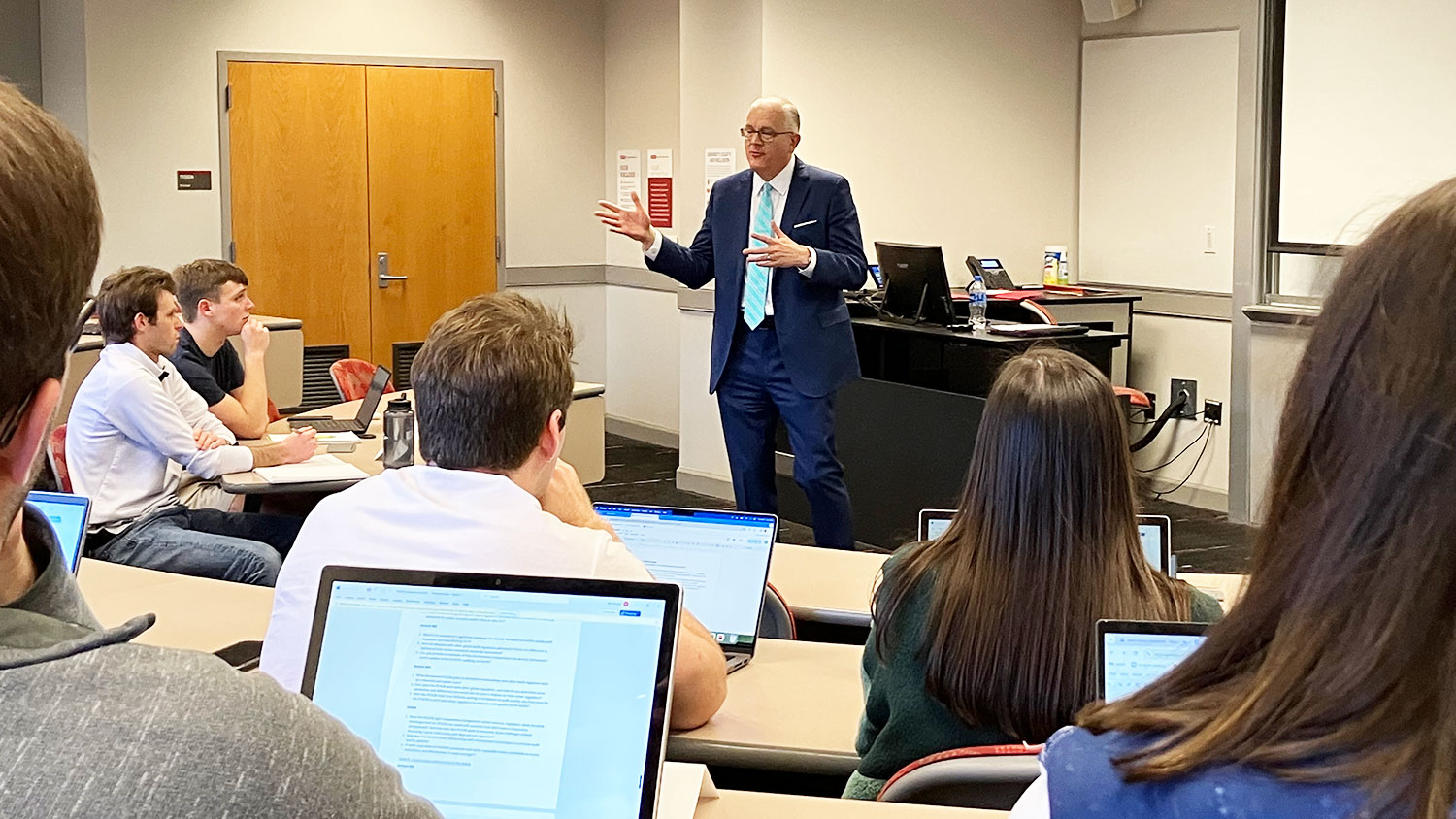On June 8th, ProPublica, a group of investigative journalists investigating abuses of power, released an article based on confidential IRS data of thousands of the wealthiest individuals in the United States. The report suggests that its findings “demolish the cornerstone of the American tax system: that everyone pays their fair share and the richest Americans pay the most.”
But is that true?
In this Poole Thought Leadership article, accounting professors Nathan Goldman, Christina Lewellen and Andrew Schmidt discuss the article and provide context to its findings.
The U.S. taxes income… not wealth.
The U.S. Congress creates tax laws, and our tax system is based on how much money you make each year, not how much money you are worth. This simple fact creates confusion among most of the country when they see that, according to the ProPublica article, over the last five years Jeff Bezos (net worth $177 billion) paid only $973 million in total income taxes, Elon Musk (net worth $151 billion) paid only $455 million, and even Warren Buffet (net worth $96 billion) paid only $24 million.
The mismatch between these individuals’ wealth and income taxes is because their wealth does not necessarily reflect actual income. Instead, it demonstrates their increase in fortune based on the investments they own, which are only subject to tax when sold. Furthermore, many of these individuals do not claim a large salary. For example, Bezos, Musk and Buffett’s salaries in 2020 were $81,840, $0 and $100,000, respectively. Thus, most of their tax bills will come due only when they sell stock.
Cash flows for the ultra-wealthy
So, you may be wondering: “If the ultra-wealthy do not have wage income, then how can they afford to live their lavish lifestyles?” After all, Bezos lives in a 29,000 square foot estate, Elon Musk has a collection of some of the world’s most sought-after cars, and Warren Buffett gives away billions to charities. The easiest way for these individuals to bring in cash flows is to sell some of their personal holdings of their respective company’s stock. This action will trigger a capital gain, which is subject to a 20% tax rate in 2021.
So while the ProPublica article focuses on the years where the ultra-wealthy pay no income taxes, the article also shows years where some of these individuals had large spikes in their income taxes paid (such as Musk paying $1.34 billion in taxes in 2016), which likely reflects stock sales. However, according to ProPublica, these individuals are also borrowing money – a common practice amongst the wealthy.
Borrowing money as a tax-favored decision
Many ultra-wealthy individuals elect to borrow money, rather than selling shares in their company, as a tax-favored decision. Here is how it works: these individuals pledge their stock as collateral and can receive large sums of money from anybody who lends to them. In return, they pay back the money with interest over time. None of the borrowed cash they receive is considered income, and the interest paid may be tax-deductible. In turn, the ultra-wealthy maintain control of their company.
For these individuals, holding – rather than selling – shares of their own companies has been a lucrative decision in the past decade. Should the wealthy hold the shares until they pass away, then the tax basis of the shares gets “stepped up.” Stepping up the tax basis of stock reduces any accumulated gain in the stock to zero, effectively setting the tax value to the market value at the date of death. Should the estate sell the shares at that point, it will owe no taxes on the appreciation in stock price. Furthermore, any borrowed money will count against the estate and lower the decedent’s tax bills. Thus, borrowing, rather than selling, shares is a clear win-win for the ultra-wealthy.
The ultra-wealthy are not tax criminals
A few politicians are using the ProPublica article as an additional rallying point about the unfairness of a number of aspects of the U.S. tax system. However, it is important to note that although the ultra-wealthy are not tax criminals, they do have the resources to pay lawyers and tax consultants to help navigate the increasingly complicated U.S. Internal Revenue Code for deductions and other “tax loopholes” that are not accessible to less wealthy taxpayers. In reality, the politicians need to look no further than the mirror when casting blame for this problem – a recent WSJ article highlights the hypocrisy of the lawmakers who are blasting individuals and corporations for using the same tax loopholes that they themselves created. Simply put, it seems a bit disingenuous to shame people for following the rules of the game.
Changing the rules
While it is unlikely that the ProPublica article will lead to a significant change in the U.S. tax rules, it can help spark the discussion. Many stakeholders have proposed alternatives to generate additional taxes from the ultra-wealthy – such as a tax on wealth or changing the estate tax rules, which may help deter some of the aforementioned behavior. However, an important standard for a “good tax” takes into account an individual’s ability to pay a tax. If Congress changed the tax law to tax annual changes in wealth based on stock price increases (rather than gains from stock sales), absent some sort of income restriction, all individuals holding stock – including lower-wealth individuals – would owe tax every year that the stock price goes up, even though they might not have the cash to pay the tax because they have not sold any of the assets.
So while the discussion around this article is good, it is important to remember that determining fair and efficient tax laws is complicated, and no rule change is perfect. And while the current structure of estate taxes may benefit the ultra-wealthy, it also benefits small business owners and middle and upper-class individuals. It can be difficult to create rules that increase the tax burden on the ultra-wealthy without also punishing numerous other groups of individuals.
- Categories:
- Series:



